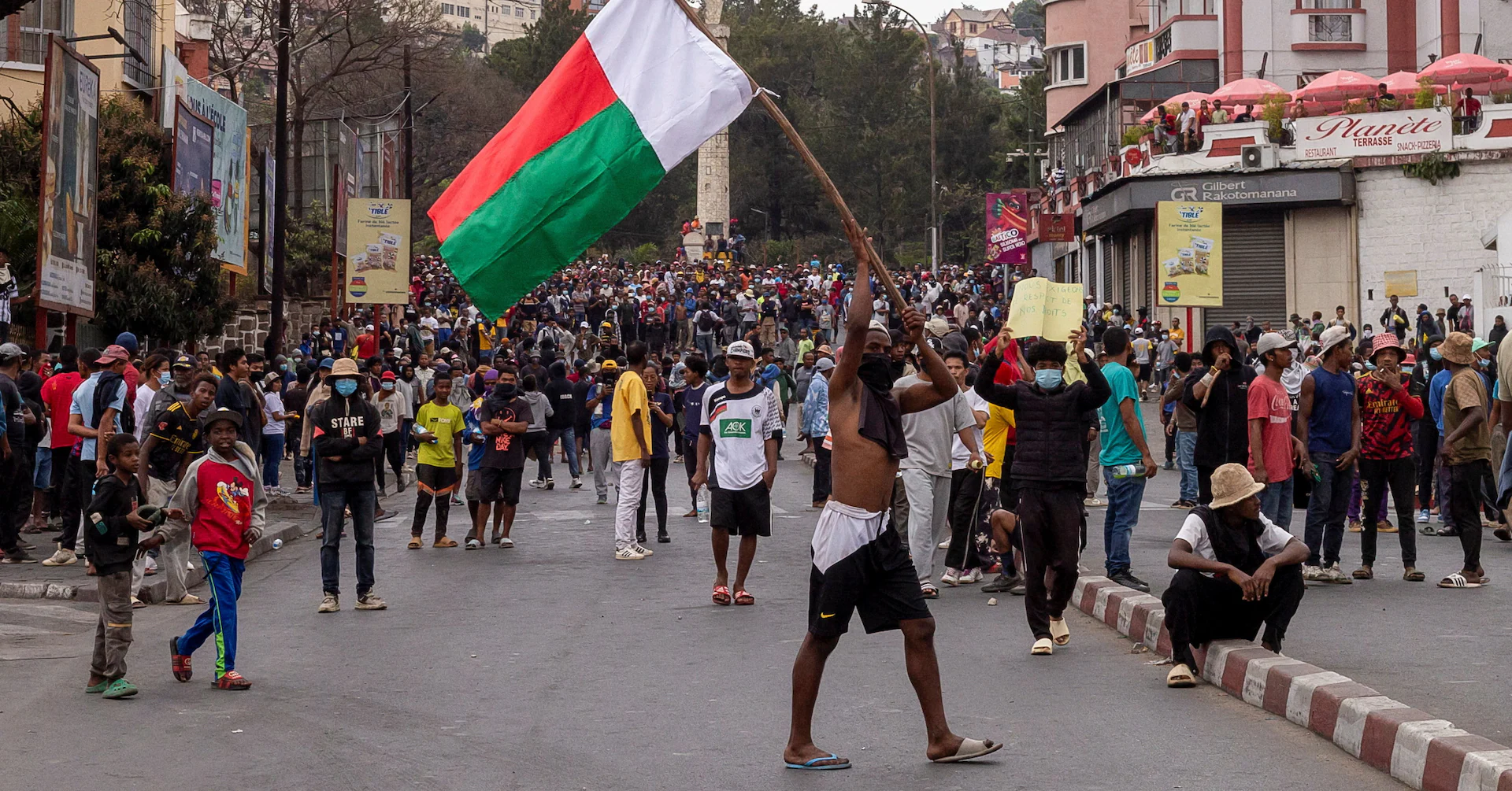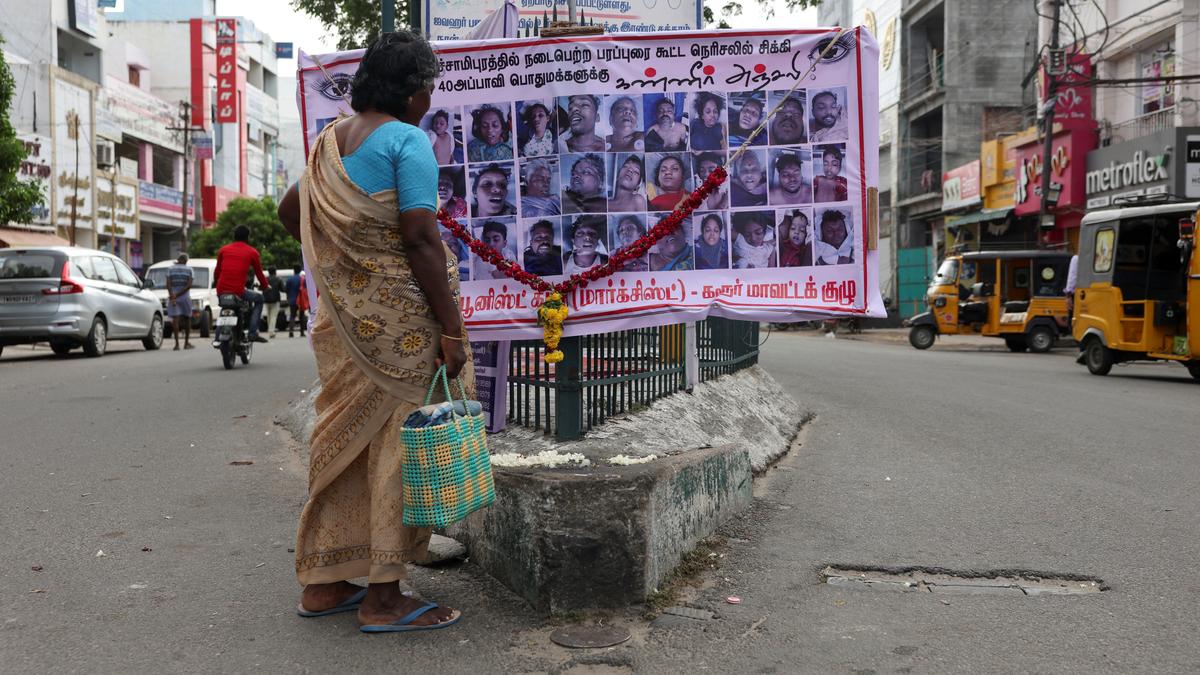
Sept 30 (Reuters) – This is an excerpt of the Sustainable Switch newsletter, where we make sense of companies and governments grappling with climate change, diversity, and human rights on Tuesdays, Thursdays and Fridays.
Sign up here.
Hello!
This week, “Gen Z” protesters in Madagascar are taking to the streets to protest frequent power outages and water shortages. The demonstrators are denouncing the government and demanding restoration of reliable water and electricity across the country.
Madagascan President Andry Rajoelina said he was dissolving the government following the youth-led protests in which the United Nations says at least 22 people have been killed and more than 100 injured.
But it’s not just Madagascar that’s seen youth protests over resources or anti-corruption this week.
Over in Morocco, youth-led protests organised by a group calling itself “GenZ 212” spread across several cities this week, where demonstrators have called for improvements to the public health and education systems.
Peru’s Gen Z are protesting the country’s pension system, but the demonstrations were also fueled by longstanding anger against President Dina Boluarte and Congress.
Madagascar, Morocco and Peru join the likes of Indonesia, Nepal and the Philippines in the wave of youth protests this year. But those nations also have two other things in common.
Floods, quakes and protests
So far, most of the countries experiencing protests have had a major extreme weather event over the past year.
Peru experienced heavy rains in February that left towns in ruin; Madagascar was hit by a major cyclone in March; a deadly flood swept across Nepal’s Bhote Koshi River as the Philippines was battered by torrential rains in July; and the Philippines is currently reeling from the aftermath of Super Typhoon Ragasa and storm Bualoi.
Earlier this month, Indonesia experienced floods on the island of Bali which killed at least nine and affected 600 people.
Although Morocco did not experience an extreme weather event in 2025, the north African nation suffered from fatal floods last year and suffered from a catastrophic earthquake that killed nearly 3,000 people in 2023.
Earlier this month, on the second anniversary of the quake, dozens of survivors staged a protest in front of Morocco’s parliament in Rabat, calling on the government to take reconstruction aid as seriously as World Cup projects.
Protesting over funds used for disaster prevention and recovery was also seen in the Philippines where youth demonstrators took to the streets over mismanaged funds assigned to flood control projects.
Inequality and climate change
The demonstrations around the Global South come as hundreds of environmental and human rights groups have urged the COP30 global climate summit in Brazil this November to confront the historical roots of the climate crisis, and put reparations on the agenda.
The letter argues that historical crimes, such as enslavement and colonialism, created global inequalities in resource access, drove asymmetrical contributions to emissions, increased vulnerability to disasters, and continue to exclude many from climate decision-making.
Why is that letter relevant to the protests? Most of the countries mentioned in today’s newsletter experiencing protests and extreme weather events were also subjected to colonialism.
Madagascar and Morocco were colonized by France, while Indonesia was subject to Dutch colonization. Peru and the Philippines both experienced Spanish colonization. The Philippines was also colonized by the United States and Japan.
The letter said that it would be significant for Brazil, which received more enslaved people than any other country and today has the largest population of African descendants outside Africa, to take the lead on this call.
Leaders of developing countries also say rich nations must provide resources to cope with climate change, a crisis they created.
ESG LENS
Climate change and environmental degradation pose a direct threat to the natural resources that Europe needs for its economic security, the EU’s European Environment Agency said. Europe is the world’s fastest-warming continent and is experiencing worsening droughts and other extreme weather events.
Take Spain for example. With hotter and drier weather stoking larger and more destructive fires, experts and locals alike are calling for fire breaks and other forestry management methods and incentives to be urgently implemented to avoid a repeat in years to come.
During a record heatwave in August, wildfires killed four people, encroached on cities and towns and charred 330,000 hectares, an area twice the size of London.
Today’s Sustainable Switch was edited by Mark Potter
Think your friend or colleague should know about us? Forward this newsletter to them. They can also subscribe here.



